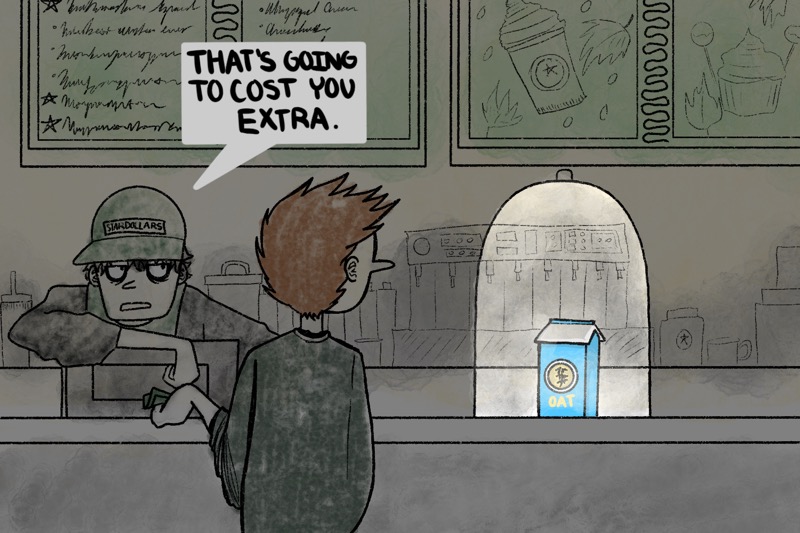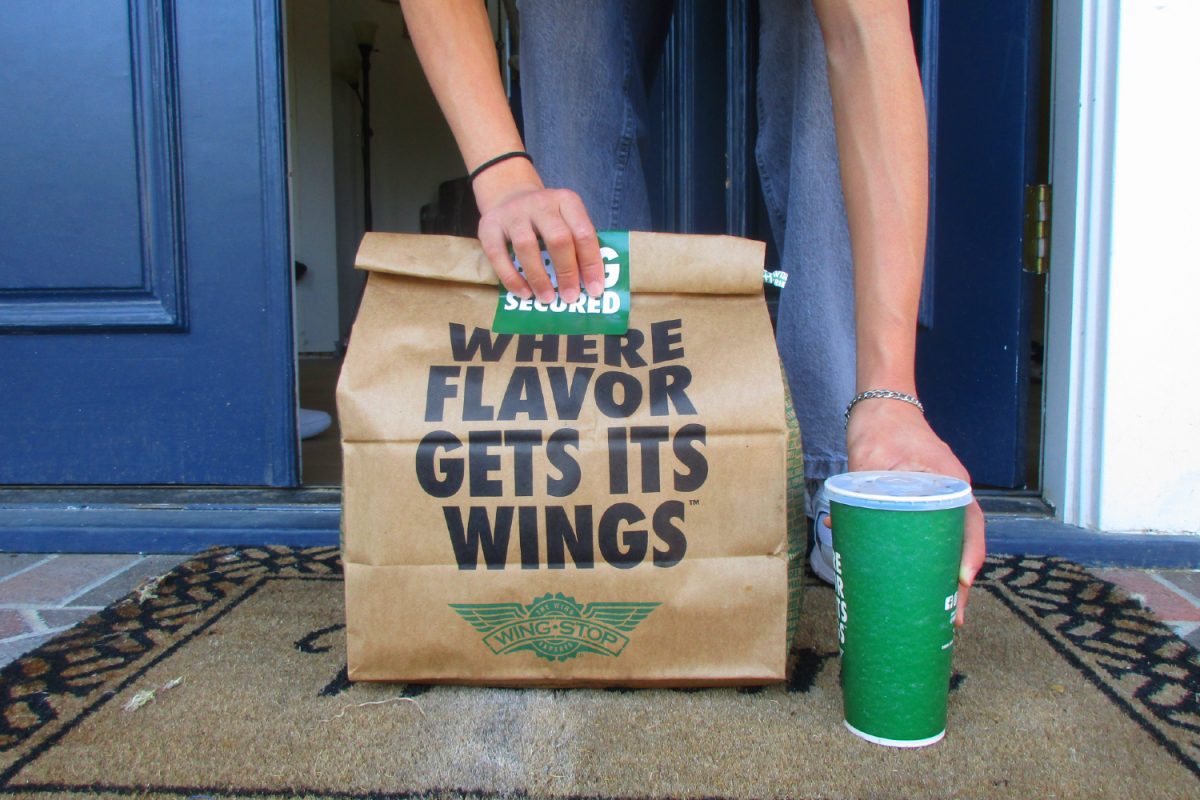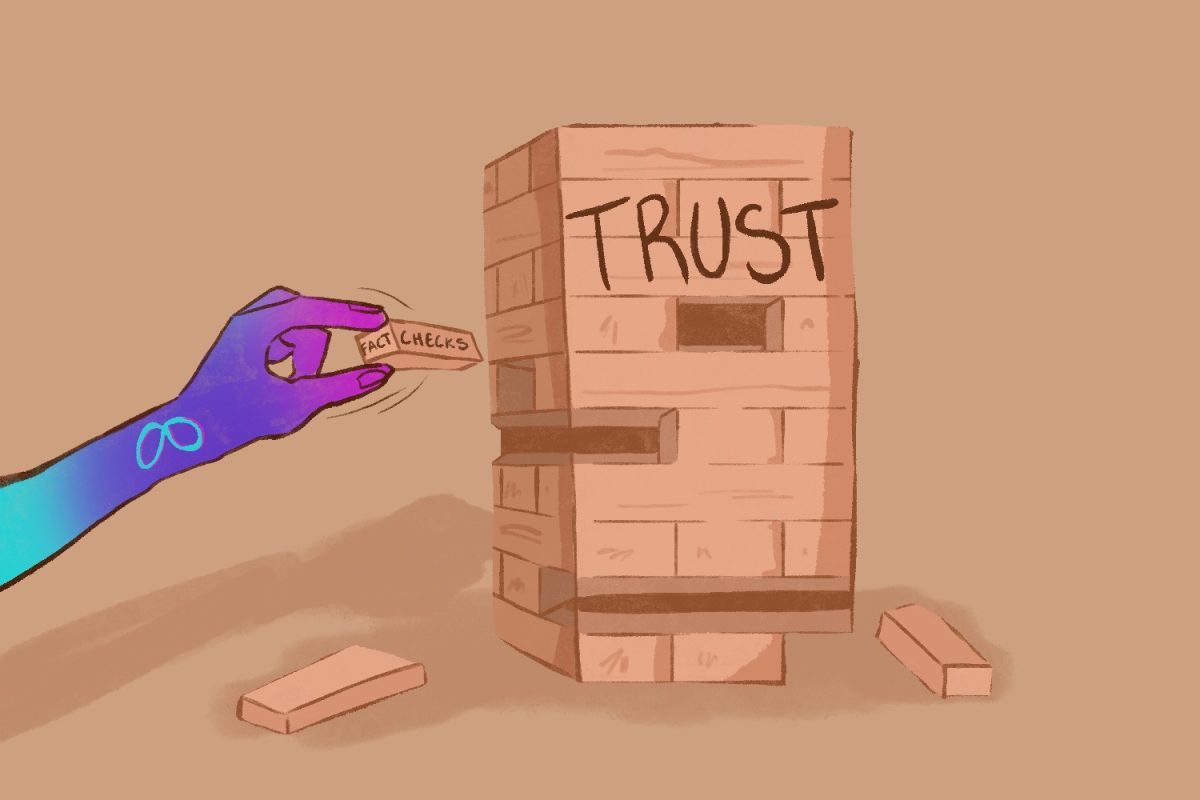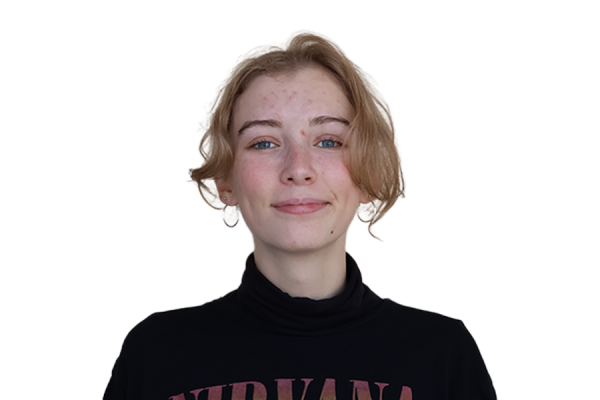If you are vegan, lactose intolerant, seeking to lower your carbon footprint, or prefer the taste of plant-based milk, expect to pay around $0.75 more for your coffee than those opting for dairy milk.
Coffee shops are using the excuse that plant-based milk is more expensive to gain profit.
Though, indeed, plant-based milk costs, on average, $0.04 per ounce more than dairy, the average cup of coffee with plant-based milk is only $0.06 more than dairy milk, according to Marketplace. That translates to on average, coffee shops charging more than 10 times as much to cover the additional cost.
The ability to drink dairy milk is a choice for some. For others, it is not and can lead to several health scares if dairy is consumed.
According to the Americans with Disabilities Act (ADA), lactose intolerance is considered a disability. A study from the National Institute of Health (NIH) found that 36% of Americans are lactose intolerant.
Unless the business can demonstrate that making the accommodation would involve significant difficulty or expense, the company must make a reasonable accommodation for a customer. To abide by ADA protocols, lactose-intolerant Americans should not be charged extra for something out of their control.
Additionally, coffee shops should promote the consumption of non-dairy milk, especially if they claim to be environmentally friendly.
Starbucks stated that its comprehensive approach is built on its commitment to creating a more sustainable, equitable, and resilient future for coffee, farmers, communities, and our planet. A local coffee shop, Groovy Goose, released a blog about their sustainable efforts.
Coffee shops can say whatever they want about their “environmentally friendly mission” but their action of charging extra for non-dairy milk demonstrates that they couldn’t care less about the environment.
According to Our World in Data, cow’s milk has a substantially greater impact than plant-based alternatives on the environment. The raising of cattle utilizes 10 times as much land, produces two to 20 times as much freshwater, emits about three times as much greenhouse gas, and increases eutrophication significantly.
The additional charge could be deterring customers from doing their part to reduce their carbon footprint. If Starbucks truly cared about building a sustainable, equitable, and resilient future, customers would not be paying extra for plant-based milk.
Some companies, such as Blue Bottle have made plant-based milk their default to accommodate the needs of all individuals. According to Blue Bottle, 63% of Americans are choosing oat milk as their beverage of choice, replacing whole milk as the preferred option for guest orders. Blue Bottle is continuing to offer other milk alternatives.
Instead of penalizing those who cannot or choose not to drink dairy, coffee shops should consider following the example of companies like Blue Bottle, which have embraced plant-based milk as a standard option.
*This editorial reflects the views of the Editorial Board and was written by Ben Romanowsky. The Editorial Board voted 5 in agreement, 9 somewhat in agreement, and 1 in disagreement.













